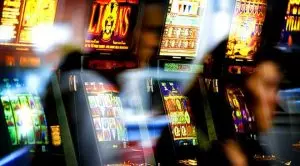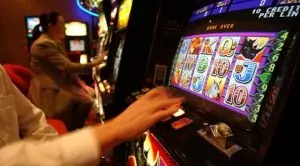 According to the fifth edition of the Social and Economic Impact Study (SEIS), gambling in Tasmania has continued to decline.
According to the fifth edition of the Social and Economic Impact Study (SEIS), gambling in Tasmania has continued to decline.
The state’s Government revealed that it has put important measures in place in order to reduce problem gambling in Tasmania, with the Government also saying that the latest Report has confirmed that those measures are working as initially intended.
According to the figures unveiled in the report, the prevalence of gambling has kept the downward trend, with the rates declining from 71.7% in 2008, to 58.5% in 2017 and, finally, to 47% in 2020. The local Government has also confirmed that problem gambling remains a serious issue, with an estimated 0.4% of the adult residents of Tasmania being classified as gambling addicts based on the Problem Gamblers Severity Index. The figure, however, represents a decline from the 0.6% rate of Tasmanian problem gamblers measured in the fourth edition of SEIS.
Also, Tasmania has been reported as the state with the lowest per capita expenditure on gambling of all Australian states, with local residents losing AU$733 a year per adult in comparison with an average of AU$1,277 in the rest of the country.
According to the SEIS report, lottery tickets is currently the most common gambling activity in Tasmania, with 37% of the adult residents of the state participating. Keno, instant scratchcards and electronic gaming machines, or so-called pokies, were next in popularity, with 17%, 11% and 9% of Tasmania’s adult population being involved in these forms of gambling.
Anti-Gambling Advocate Andrew Wilkie MP Remains Concerned Despite Gambling Addiction Rates Decline
 Although the survey has shown a slight downward trend in rates of prevalence of gambling and gambling addiction, the independent Member of Parliament Andrew Wilkie explained that gambling participation and spending in the state still remains concerning, not to mention the poker machines, which have long been criticised by Mr Wilkie. As the Member of Parliament explained, it is a bad thing that the Government allows so-called pokies to be placed in the most disadvantaged parts of the state. He noted that 30% of the poker machines in Tasmania are currently hosted in the state’s poorest region, with this trend coming with a significant personal cost to community members and the entire community as well.
Although the survey has shown a slight downward trend in rates of prevalence of gambling and gambling addiction, the independent Member of Parliament Andrew Wilkie explained that gambling participation and spending in the state still remains concerning, not to mention the poker machines, which have long been criticised by Mr Wilkie. As the Member of Parliament explained, it is a bad thing that the Government allows so-called pokies to be placed in the most disadvantaged parts of the state. He noted that 30% of the poker machines in Tasmania are currently hosted in the state’s poorest region, with this trend coming with a significant personal cost to community members and the entire community as well.
What is found even more alarming by Mr Wilkie is the fact that “gambling corrupts governors” in Tasmania. The independent Member of Parliament and a long-time anti-gambling advocate shared that the local Government explicitly does not address harm minimisation under the pressure coming from the gambling industry. Furthermore, he highlighted the fact that the Premier has repeatedly refused to reveal the new rates that will apply for poker machines, saying that this could be paving the way for the Tasmanian Government to offer a reduction on gambling taxes in the years to come.
According to Mr Wilkie, members of the State Parliament, and especially of the Upper House, must not support any gambling reform in the Parliament unless they are given a very good reason for that or the changes are associated with minimisation of gambling-related harm and banning of the addictive features of the poker machines.
As for the proposed reduced operating hours for venues hosting poker machines, Mr Wilkie MP does not believe operating hours from midday to midnight would prevent members of the public to stop recreational gambling. He said that such a move would be particularly aimed at the players who spend too much time and money on clubs’ and pubs’ poker machines.
- Author


